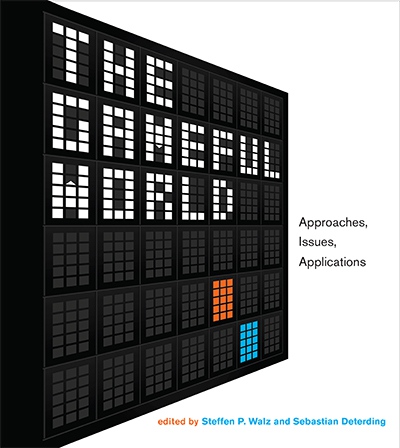In a Nutshell
At RMIT University's GEElab, we are researching how game design thinking can positively affect and alter architecture & urbanism, mobility, popular media, storytelling, engagement, other sciences as well as society itself.
What if our whole life were turned into a game? What sounds like the premise of a science fiction novel is today becoming reality as “gamification.” As more and more organizations, practices, products, and services are infused with elements from games and play to make them more engaging, we are witnessing a veritable ludification of culture.
Yet while some celebrate gamification as a possible answer to mankind’s toughest challenges and others condemn it as a marketing ruse, the question remains: what are the ramifications of this “gameful world”? Can game design energize society and individuals, or will algorithmic incentive systems become our new robot overlords?
In this book, more than fifty luminaries from academia and industry examine the key challenges of gamification and the ludification of culture—including Ian Bogost, John M. Carroll, Bernie DeKoven, Bill Gaver, Jane McGonigal, Frank Lantz, Jesse Schell, Kevin Slavin, McKenzie Wark, and Eric Zimmerman. They outline major disciplinary approaches, including rhetorics, economics, psychology, and aesthetics; tackle issues like exploitation or privacy; and survey main application domains such as health, education, design, sustainability, or social media.
“This volume embodies the spirit of debate around the highly contested areas of games, gamefulness, and gaming. With help from key thinkers in the field, the editors lay out central debates, case studies, ethical concerns, and dreamscapes for the future of this field. This is the go-to volume for rhetorics and debates on game mechanics in interaction programming. If you want to understand the potential and the pitfalls of what the editors call the ‘interpenetration of games and everyday life’, this an essential resource.”
—Elizabeth F. Churchill, Director of User Experience, Google; Executive Vice President, ACM SIGCHI
“Gamification, for better or worse, has taken the world by storm. Walz and Deterding have collected virtually everything important that has been said about it. Wide-ranging and incisive, the essays collected herein give us a deeper understanding of the very real possibilities inherent in using the many glories of games and fun and play.”
—Raph Koster, lead designer, Ultima Online; author of A Theory of Fun for Game Design

At RMIT University's GEElab, we are researching how game design thinking can positively affect and alter architecture & urbanism, mobility, popular media, storytelling, engagement, other sciences as well as society itself.